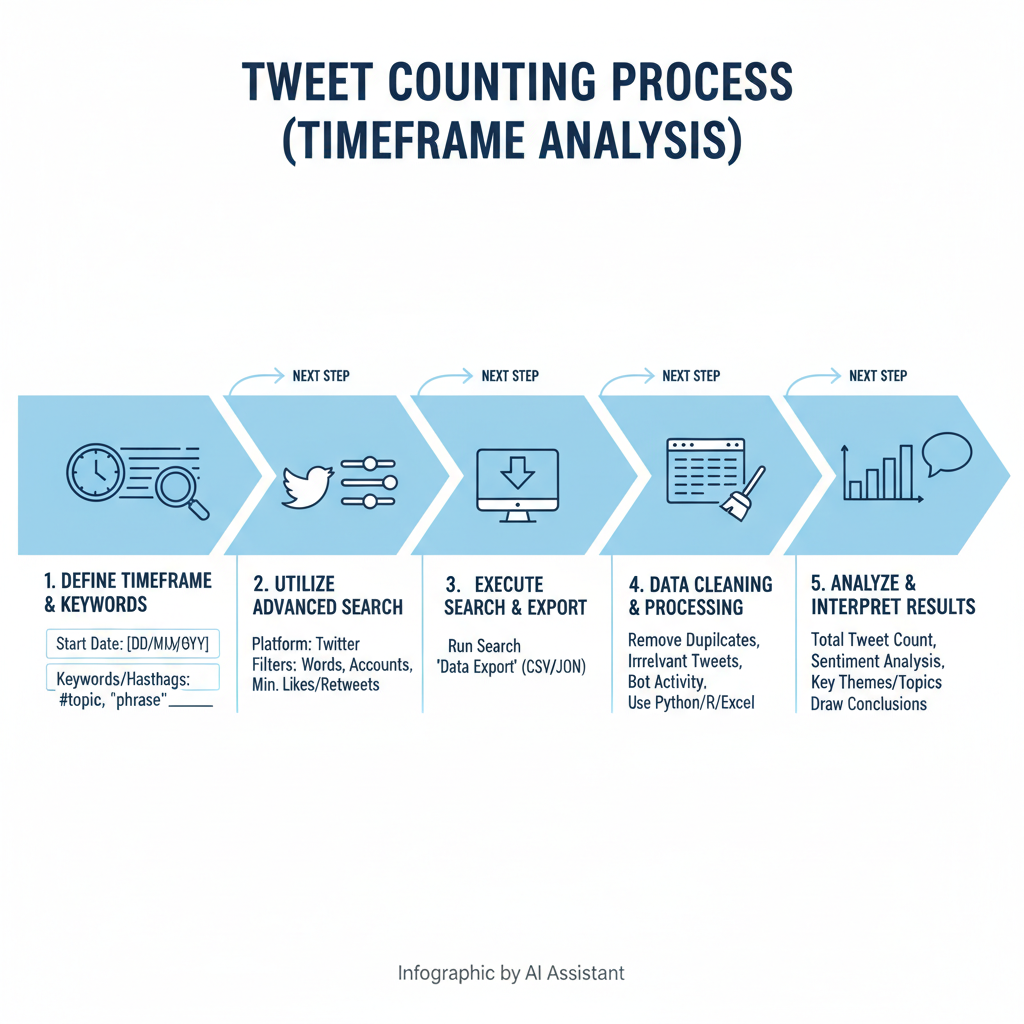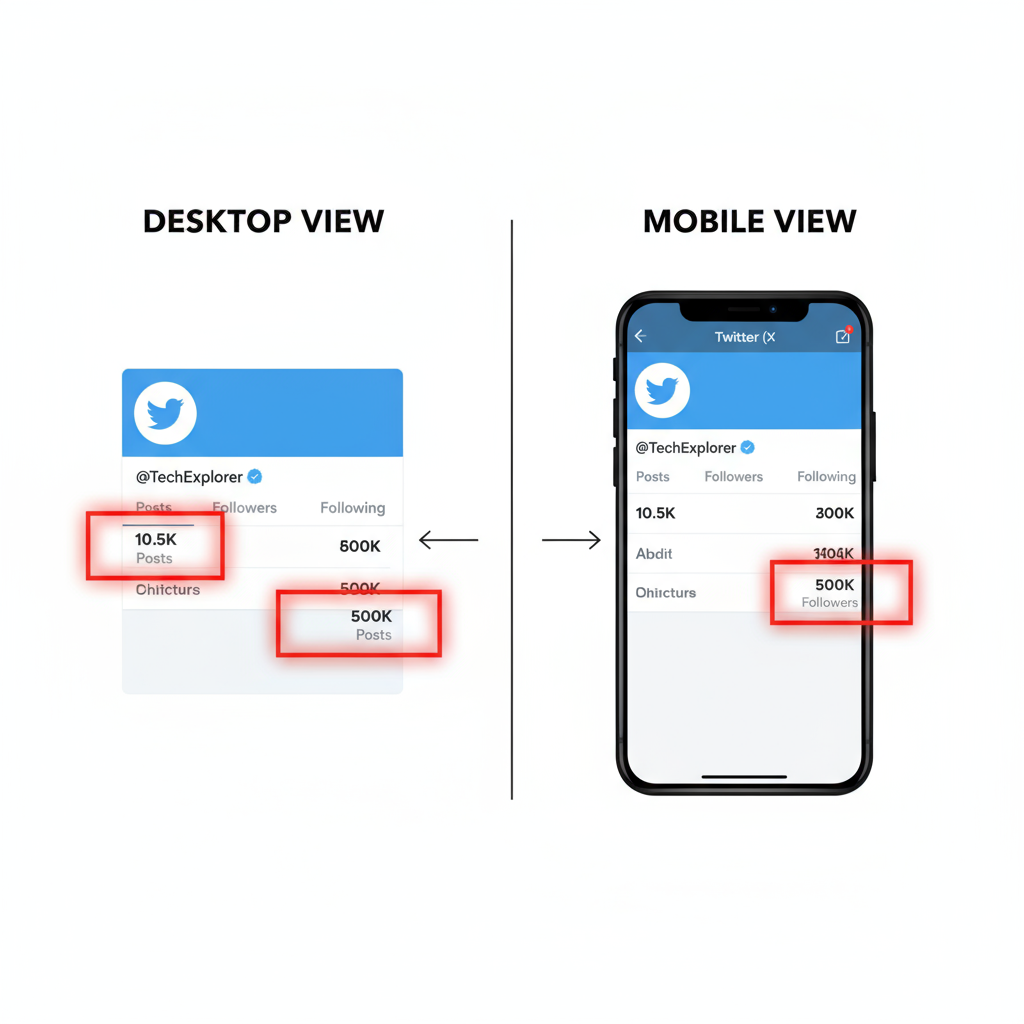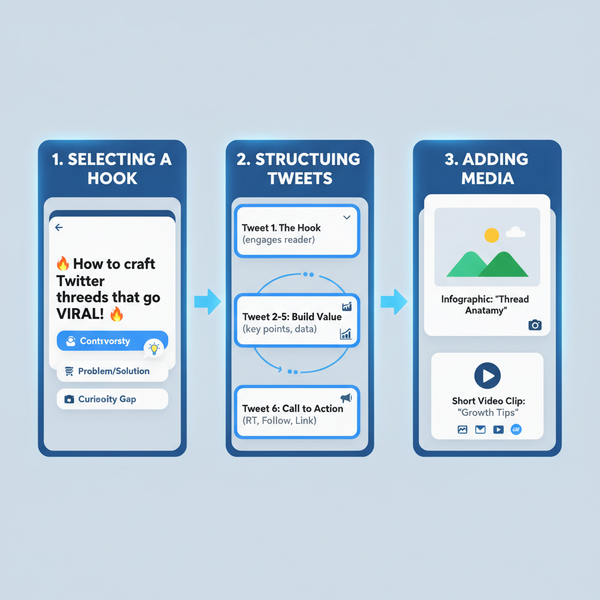How to Count Tweets and Followers on Twitter Accurately
Learn accurate ways to track tweet and follower counts on Twitter, using manual methods, analytics tools, and API data while staying compliant.

How to Count Tweets and Followers on Twitter Accurately
Accurately tracking Twitter counts—including tweets, followers, and related engagement metrics—is essential for users, creators, and businesses aiming to measure performance or audience growth. Understanding where to find counts, how to calculate them over time, and the tools available ensures reliable data for strategy and reporting. In this guide, we explore methods for locating and interpreting counts, using both manual and automated approaches, while remaining compliant with Twitter (X) policies.

---
Understanding What "Count" Means on Twitter
On Twitter (also referred to as X in recent updates), “count” may describe several metrics:
- Tweet Count: Total tweets posted by an account, including replies and retweets.
- Follower Count: Number of accounts following a profile.
- Following Count: Number of accounts a user follows.
- Like Count: Total tweets a user has liked.
- Engagement Counts: Likes, retweets, replies, and quote tweets on individual posts.
> Note: These counts can update in real time but may appear rounded in the interface.
---
Locating Counts on the Twitter Profile Interface
Desktop View
On desktop browsers, counts appear beneath your profile name and handle, with clickable metrics such as:
- Tweets
- Following
- Followers
- Likes
Mobile View
On the mobile app, counts are placed under the profile avatar and bio, though some UI versions hide likes or lists behind tabs.
| Metric | Desktop Location | Mobile Location |
|---|---|---|
| Tweets | Center of profile header section | Below username in profile |
| Followers | Profile header, right side | Under “Followers” label |
| Following | Profile header, left of Followers | Under “Following” label |
| Likes | Separate tab on profile | Likes tab on profile |
---
Viewing Exact Tweet Counts and Limitations
Twitter’s interface often rounds large numbers (e.g., showing “25.6K” instead of “25,642”).
Limitations include:
- API Access: Exact counts require Twitter API calls, which need developer access.
- Backend Delay: Counts sometimes update with a delay.
- Rate Limits: Frequent requests may trigger usage restrictions.
---
Counting Tweets in a Given Timeframe
You can determine tweet volumes between two dates using:
- Search Operators:
- Advanced Search Form: Add date restrictions through Twitter’s search page.
- Manual Counting: Scrolling and counting (impractical for large accounts).
from:username since:YYYY-MM-DD until:YYYY-MM-DDExample: Counting tweets from January 2024
from:jack since:2024-01-01 until:2024-02-01---

Using Twitter Analytics to Count Engagement
Twitter Analytics offers deeper performance metrics:
- Impressions: Times a tweet was seen.
- Engagements: Interactions including likes, retweets, and replies.
- Profile Visits: Number of visits to your profile.
Access via More → Analytics on desktop or analytics.twitter.com.
---
Exporting and Counting Follower Data
Manual Method
- Open the followers list.
- Scroll fully to load all names.
- Copy or screenshot for records.
Third-Party Tools
Approved tools like Followerwonk can:
- Export CSV files of follower usernames.
- Track changes by comparing data over time.
> ⚠ Compliance Note: Always ensure third-party tools follow API guidelines and privacy laws.
---
Automating with Twitter API v2 Endpoints
Twitter API v2 provides endpoints to fetch counts programmatically:
- `/2/users/:id` returns public metrics including `follower_count` and `tweet_count`.
- `/2/tweets/counts/recent` or `/2/tweets/counts/all` return tweet counts over time.
Basic steps:
- Sign up for a developer account.
- Generate a bearer token.
- Make authorized GET requests.
Python Example:
import requests
bearer_token = "YOUR_BEARER_TOKEN"
headers = {"Authorization": f"Bearer {bearer_token}"}
url = "https://api.twitter.com/2/users/123456789?user.fields=public_metrics"
response = requests.get(url, headers=headers)
print(response.json())> Tip: Historical data beyond 7 days may need premium or enterprise access.
---

Common Issues When Counts Mismatch
- UI Rounding vs API Precision
- Cache Delays: Updates may lag.
- Bulk Account Purges: Spam removal can cause drops.
- Suspensions: Suspended accounts no longer appear as followers.
---
Privacy and Terms of Service Considerations
When tracking counts:
- Follow the Twitter Developer Policy.
- Adhere to the Twitter Terms of Service.
- Respect GDPR, CCPA, and other data regulations.
- Avoid collecting unnecessary personal data.
---
Example: Tracking Follower Growth Over a Month
Scenario: Measuring April’s follower growth.
- Record April 1 follower count.
- Record April 30 follower count.
- Subtract start from end to find growth.
| Date | Follower Count |
|---|---|
| April 1 | 10,542 |
| April 8 | 10,783 |
| April 15 | 10,910 |
| April 22 | 11,065 |
| April 30 | 11,200 |
Result: 658 new followers in April.
---
Tips for Businesses and Creators
- Track Trends: Spot content that drives growth.
- Align with Campaigns: Correlate spikes with marketing pushes.
- Set Benchmarks: Know your averages.
- Automate Tracking: Save time with API scripts.
- Focus on Engagement: Quality of followers matters more than pure numbers.
---
Summary and Next Steps
Knowing how to accurately count tweets and followers on Twitter equips you to make informed, data-driven decisions for audience growth and engagement strategy. Use built-in search tools, Twitter Analytics, or API endpoints for more precise results, and always stay compliant with platform rules. For sustained growth, track consistently, review patterns, and act on insights.
Ready to start tracking? Choose your preferred method and begin monitoring your Twitter counts today to optimize your profile performance.




